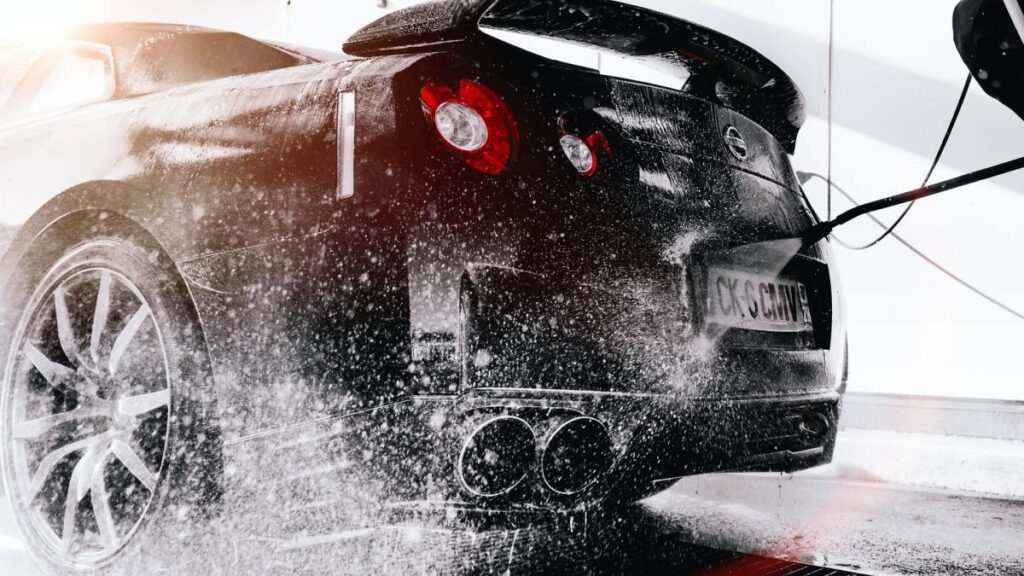
Cars often mean more than just transportation. For many, they represent a personal passion, a hobby, or even a lifestyle. When family situations change, such as during a divorce or separation, vehicles—especially those modified or customized—can become a complicated topic. It is not just about who gets the car but who keeps the investment and the personal touch put into it.
This complexity grows when a car has been modified or holds sentimental value. Family law steps in to help determine fair outcomes, but the process often involves balancing emotional attachments with practical legal considerations. That balance is necessary to make decisions that affect both the family’s future and the vehicle’s fate.
The emotional stakes involved with a cherished car can lead to tension during legal proceedings. Vehicles often serve as a symbol of personal identity, and losing access to one can feel like losing a part of oneself. Recognizing these feelings can help all parties approach the situation with more empathy and reason.
Family Law and Its Reach Into Personal Assets
According to the Law Offices of Robert P. Luber, family law covers many areas beyond child custody and support. Property division is a major part of it, and cars frequently fall under this category. Whether it is a daily driver or a highly customized vehicle, these assets can have a significant role in settlement discussions. The law looks at ownership records, but it also considers who has been responsible for the vehicle’s upkeep and use.
Modified cars present unique challenges. The value of aftermarket parts, custom paint jobs, or performance upgrades can complicate the division. Courts often have to assess how these additions affect the vehicle’s worth and whether they should be split financially or awarded to one party. These decisions aim to create fairness while acknowledging personal investment.
Because family law varies by location, outcomes can differ depending on state or country rules. Some places consider marital contributions beyond financial ones, such as time spent upgrading or maintaining a vehicle. This legal nuance can influence who ultimately gains control over a car and its modifications.
Why Modified Cars Bring Extra Challenges
When a vehicle has been heavily customized, it becomes more than a simple asset. The time, money, and passion poured into modifications give the car a special place in the owner’s life. This emotional connection can make disputes over ownership more intense. It is not just about who owns the title but who truly values the car.
Disagreements arise when one partner claims the modifications as their work or money. This creates a gray area in family law, where courts weigh financial contributions alongside personal attachment. In some cases, selling the car and splitting the proceeds might seem like a solution, but it can also mean losing a treasured possession.
Additionally, the market for modified cars can be niche, making it harder to place a clear monetary value on the vehicle. This uncertainty can lead to prolonged negotiations or require specialized appraisals, which add to the complexity of the legal process. Finding a fair middle ground takes patience and expertise.
Legal Factors That Affect Vehicle Ownership
The title and registration of a car are important legal elements, but they do not always tell the full story. Loans, leases, and co-ownership can make these cases more complicated. If a vehicle is financed jointly, both parties may remain liable for payments even if only one retains the car.
Family law seeks to clarify these obligations. Refinancing a loan or restructuring payments often becomes necessary after a separation. Courts look at income, who uses the car for work or family needs, and the ability to continue payments. These financial realities shape the final agreements.
Insurance also plays a significant role in post-divorce vehicle ownership. One party may need to adjust coverage or add new policies depending on who retains the car. This adds another layer to consider when settling ownership, ensuring legal and financial responsibilities are clearly assigned.
Car Modifications and Their Value in Settlements
Modifications add a unique dimension to property division. Aftermarket parts, performance tuning, and custom work can increase or sometimes decrease the vehicle’s market value. It is common for disputes to arise over who should receive credit for these changes.
Evaluating the value of modifications requires expert input or appraisals. Courts aim to ensure neither party loses out unfairly. Sometimes, one partner may be awarded the car along with the modifications, while the other receives compensation through other assets. This approach helps maintain balance and acknowledges the effort involved.
In some cases, parties might agree on buyouts or other financial arrangements to avoid selling a vehicle. This can allow one partner to keep the car intact, preserving its modifications and sentimental value while compensating the other fairly. Such solutions require cooperation but often lead to smoother resolutions.
Final Thoughts on Cars and Family Law
Cars can carry deep meaning in family disputes, especially when customized or modified. Family law provides the framework to handle these issues fairly, focusing on legal ownership, financial responsibility, and personal investment. These cases often require careful consideration beyond just paperwork.
Ultimately, the goal is to reach an outcome that respects both the emotional and practical sides of vehicle ownership. Whether a car is a prized possession or a daily necessity, family law plays a crucial role in deciding who keeps it and how its value is recognized. These decisions can shape a family’s path forward in meaningful ways.
Being mindful of the complexities involved helps everyone move past conflict toward resolution. Open communication, clear agreements, and professional advice make the process less painful and protect what matters most for both parties. Vehicles may be objects, but they often carry the stories and connections that define family life.
